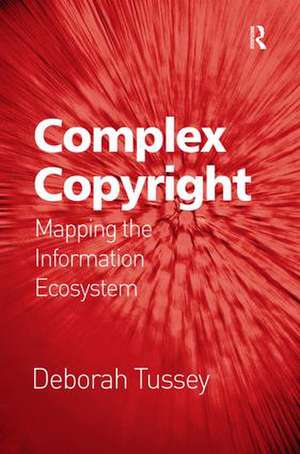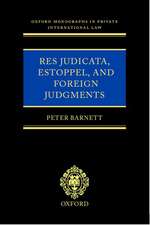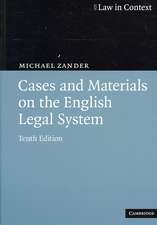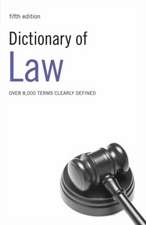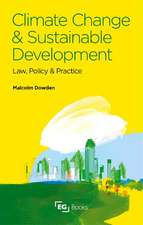Complex Copyright: Mapping the Information Ecosystem
Autor Deborah Tusseyen Limba Engleză Hardback – 28 dec 2011
| Toate formatele și edițiile | Preț | Express |
|---|---|---|
| Paperback (1) | 469.34 lei 6-8 săpt. | |
| Taylor & Francis – 16 noi 2016 | 469.34 lei 6-8 săpt. | |
| Hardback (1) | 1053.92 lei 6-8 săpt. | |
| Taylor & Francis – 28 dec 2011 | 1053.92 lei 6-8 săpt. |
Preț: 1053.92 lei
Preț vechi: 1285.26 lei
-18% Nou
Puncte Express: 1581
Preț estimativ în valută:
201.67€ • 210.99$ • 167.53£
201.67€ • 210.99$ • 167.53£
Carte tipărită la comandă
Livrare economică 02-16 aprilie
Preluare comenzi: 021 569.72.76
Specificații
ISBN-13: 9780754677840
ISBN-10: 0754677842
Pagini: 156
Ilustrații: black & white illustrations
Dimensiuni: 156 x 234 x 11 mm
Greutate: 0.43 kg
Ediția:New ed
Editura: Taylor & Francis
Colecția Routledge
Locul publicării:Oxford, United Kingdom
ISBN-10: 0754677842
Pagini: 156
Ilustrații: black & white illustrations
Dimensiuni: 156 x 234 x 11 mm
Greutate: 0.43 kg
Ediția:New ed
Editura: Taylor & Francis
Colecția Routledge
Locul publicării:Oxford, United Kingdom
Notă biografică
Deborah Tussey is a Professor at the Oklahoma City University School of Law, where her areas of specialty include international intellectual property law, copyright law, and computer law.
Recenzii
'Using easy-to-understand examples which range from Harry Potter to prairie fires, Debbie Tussey explains why copyright experts need to learn more about complex adaptive systems. This engaging, well-written and provocative book provides a timely reminder of the need for intellectual property law to be flexible enough to tolerate the chaos inherent in the creative process. Anybody who cares about the future of copyright should read this book!' Peter K. Yu, Drake University Law School, USA and Zhongnan University of Economics and Law, China 'Professor Tussey's work provides an innovative way to look at copyright law, giving scholars and legislators alike a framework to consider legal questions in a highly volatile technological environment. Her use of empirical data and creative analogies helps the reader understand the copyright landscape we will have to regulate in the very near future.' Julie Cromer Young, Thomas Jefferson School of Law, USA 'There is much to commend in Tussey’s scholarly insights and the fluency with which she navigates copyright laws and its governance challenges through the frame of complex adaptive systems theory... Tussey’s imaginative outlining of the causal linkage between creativity and works will resonate with many who question ACTA, the Google Search debacle and the expansion of copyright’s reach in space and time during the past decade.' International Journal of Law and Information Technology 'Professor Tussey makes her case for copyright as a complex adaptive system carefully and meticulously... [she] has written a thought-provoking book and is in good company with many recent books that address intellectual property reform. I recommend reading and thinking about her arguments, and I look forward to see how she builds on her important and provocative ideas.' The IP Law Book Review
Cuprins
Introduction; Chapter 1 Are Publishers Really Like Prairies? Copyright Systems as Complex Adaptive Systems; Chapter 2 A Philosopher and a Lobbyist Walk into a Bar: The Theory and Reality of Copyright Lawmaking; Chapter 3 Systems Analysis for the Copyright Ecosystem; Chapter 4 Chaos, Creativity, and Copyright; Chapter 5 Complexifying Copyright Law: A Possible Future for Copyright Lawmaking;
Descriere
This book draws on a wide selection of interdisciplinary literature discussing complex adaptive systems, to apply general complexity tenets to the institutions, conceptual framework, and theoretical justifications of the copyright system, both in the United States and internationally. The author argues that designers of copyright regimes should look to complexity theory for guidance, and that copyright law must tolerate chaotic elements that may be essential to the sustainability of complex systems.
